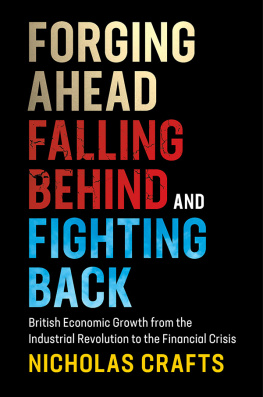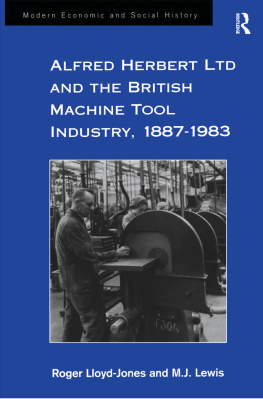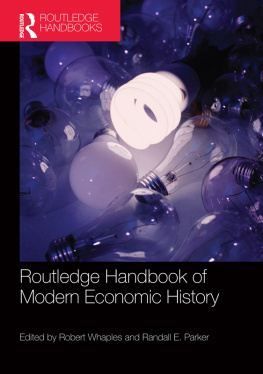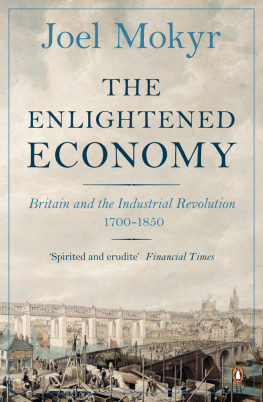First published 1998 by Addison Wesley Longman Limited
Published 2013 by Routledge
2 Park Square, Milton Park, Abingdon, Oxon OX14 4RN
711 Third Avenue, New York, NY 10017, USA
Routledge is an imprint of the Taylor & Francis Group, an informa business
Copyright 1998, Taylor & Francis.
The right of Rex Pope to be identified as the author of this Work has been asserted by him in accordance with the Copyright, Designs and Patents Act 1988.
All rights reserved. No part of this book may be reprinted or reproduced or utilised in any form or by any electronic, mechanical, or other means, now known or hereafter invented, including photocopying and recording, or in any information storage or retrieval system, without permission in writing from the publishers.
Notices
Knowledge and best practice in this field are constantly changing. As new research and experience broaden our understanding, changes in research methods, professional practices, or medical treatment may become necessary.
Practitioners and researchers must always rely on their own experience and knowledge in evaluating and using any information, methods, compounds, or experiments described herein. In using such information or methods they should be mindful of their own safety and the safety of others, including parties for whom they have a professional responsibility.
To the fullest extent of the law, neither the Publisher nor the authors, contributors, or editors, assume any liability for any injury and/or damage to persons or property as a matter of products liability, negligence or otherwise, or from any use or operation of any methods, products, instructions, or ideas contained in the material herein.
ISBN 13: 978-0-582-30194-8 (pbk)
British Library Cataloguing-in-Publication Data
A catalogue record for this book is available from the British Library
Library of Congress Cataloging-in-Publication Data
Pope, Rex.
The British economy since 1914 : a study in decline? / Rex Pope
p. cm. -- (Seminar studies in history)
Includes bibliographical references and index.
ISBN 0-582-30194-7
1. Great Britain--Economic conditions20th century. I. Title. II. Series
HC256.P66 | 1998 |
330.941--dc21 | 98-18329 |
CIP |
Set by 7 in 10/12 Sabon
Such is the pace of historical enquiry in the modern world that there is an ever-widening gap between the specialist article or monograph, incorporating the results of current research, and general surveys, which inevitably become out of date. Seminar Studies in History are designed to bridge this gap. The series was founded by Patrick Richardson in 1966 and his aim was to cover major themes in British, European and World history. Between 1980 and 1996 Roger Lockyer continued his work, before handing the editorship over to Clive Emsley and Gordon Martel. Clive Emsley is Professor of History at the Open University, while Gordon Martel is Professor of International History at the University of Northern British Columbia, Canada and Senior Research Fellow at De Montfort University.
All the books are written by experts in their field who are not only familiar with the latest research but have often contributed to it. They are frequently revised, in order to take account of new information and interpretations. They provide a selection of documents to illustrate major themes and provoke discussion, and also a guide to further reading. The aim of Seminar Studies is to clarify complex issues without over-simplifying them, and to stimulate readers into deepening their knowledge and understanding of major themes and topics.
I would like to take this opportunity to thank Tom Pope for his support in preparing the text of this book and also Gaynor Pope who, taking time off from her lifes work of ensuring the prosperity of British car retailers, gave valuable help as an (unpaid) research assistant.
PUBLISHERS ACKNOWLEDGEMENTS
The publishers would like to thank the following for permission to reproduce copyright material: Cambridge University Press for an extract from English Culture and the Decline of the Industrial Spirit, by M. Weiner 1981; two tables from Dynamic Forces in Capitalist Development. A Long-Run Comparative View by A. Maddison, 1991 by permission of Oxford University Press; OECD Economic Surveys for Great Britain. Copyright OECD 1979 and 1991; The Sunday Telegraph and Bill Jamieson for an extract taken from The Sunday Telegraph 3 August 1997; The Conservative Party for an extract from the 1983 Conservative Party Manifesto, The Challenge of Our Times; The Labour Party for an extract from the 1964 Labour Party Manifesto, Lets Go with Labour for the New Britain; The Liberal Party for an extract from Liberal Industrial Enquiry, Britains Industrial Future published by Ernest Benn in 1928; an extract from Britain and Europe (1957) by The Economist Intelligence Unit Ltd. Reproduced by permission of the Economist Intelligence Unit Ltd.; The Centre for Policy Studies for an extract from Solving the Union Problem is the Key to Britains Recovery by by Sir Keith Joseph 1979; The Policy Studies Institute for an extract from Britain and World Trade PEP June 1947; The Economist, London for extracts from 11 January 1913, 31 January 1914, 15 February 1933 and 2 January 1937; an extract from Fighting with Figures, Office for National Statistics, Crown Copyright 1995; an extract from Economic Trends Annual Supplement 199697, Office for National Statistics Crown Copyright 1997; an extract from Economic Trends, Office for National Statistics Crown Copyright 1997; extracts from Technical Education, Cmd 9703 Crown Copyright 1956, the Dainton Report Final Report into the Flow of Candidates in Science and Technology into Higher Education, Cmnd 3541, Crown Copyright 1968, an extract from the House of Commons Expenditure Committee, The Motor Vehicle Industry: Report and Minutes of Evidence, 617, 617/I-III, Crown Copyright 1975 and an extract from the Wilson Report, Committee to Review the Functioning of Financial Institutions, Cmnd 7937, Crown copyright 1980. Crown copyright is reproduced with the permission of the Controller of Her Majestys Stationery Office.
Whilst every effort has been made to trace the owners of copyright material, in a few cases this has proved to be problematic and we take this opportunity to offer our apologies to any copyright holders whose rights we may have unwittingly infringed.










